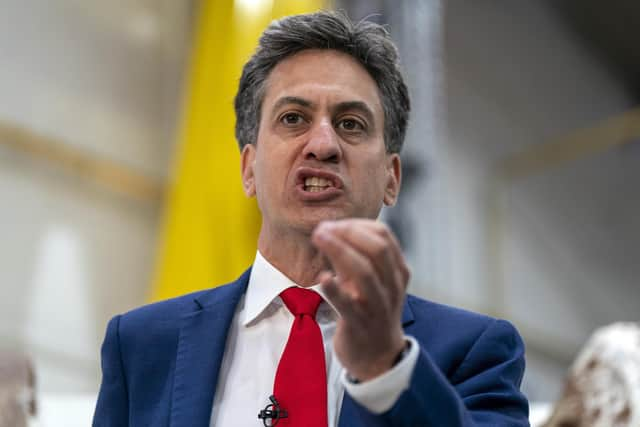Rishi Sunak urged to look again at windfall tax ahead of winter of high bills
Yesterday the energy regulator Ofgem announced that the price cap on bills would be reduce, but experts have warned that this will not lead to lower prices for many across the UK.
The new cap on a unit of gas and electricity would reduce the average bill to £1,923 from October 1, from £2,074 per year.
Advertisement
Hide AdAdvertisement
Hide AdHowever millions of struggling households will now face a lack of Government support this winter, meaning that the lowered cap will not protect many pensioners and families across the country.


Last winter a household would have paid £2,500 due to the Energy Price Guarantee, which was introduced after the energy price cap was pushed higher due to the energy crisis following the war in Ukraine.
The separate Government grant also reduced bills by around £66 per month between October and March.
Jonny Marshall, an expert at the Resolution Foundation, estimated about one in three households in England, or 7.2 million in total, will face higher bills between October and March.
Advertisement
Hide AdAdvertisement
Hide AdThis will fall predominately on the households who consume less gas and electricity than a typical household.
Yesterday both Labour and the Liberal Democrats urged the Government to look again at taxing oil and gas giants, which have seen record profits during the energy crisis, to provide further support to households.
Ed Miliband, Labour’s shadow climate change secretary said: “The problem is the Tories have learnt no lessons from this crisis. They continue to side with the oil and gas companies making record profits over hardworking British families, with their refusal to fix the gaping loopholes in the windfall tax or make the sprint we need for clean power, keeping the onshore wind ban and failing to insulate homes.
“Labour would act to close loopholes and bring in a proper windfall tax on oil and gas giants to help tackle the cost of living crisis, alongside our plan to make Britain a clean energy superpower so we can lower bills for families and businesses.”
Advertisement
Hide AdAdvertisement
Hide AdLiberal Democrat Climate and Energy spokesperson Wera Hobhouse said: “Bills will still be almost double what they were two years ago, and many families will actually be paying more than they did last winter. That is a shocking failure on the part of Conservative Ministers.
“Rishi Sunak must finally introduce a proper windfall tax on the record profits of the oil and gas giants to give families and pensioners the support they desperately need, including doubling the Winter Fuel Allowance and Warm Home Discount this Winter."
However, the Government is unlikely to bring in the same level of support seen last winter, with the state of the public finances still recovering following the turmoil of the last year.
Rishi Sunak told the BBC: “Actually, today is really good news for families up and down the country with a reduction in the energy price cap that’s going to reduce, on average, a typical family’s energy bill by about £150, easing the burden on the cost of living.”
Advertisement
Hide AdAdvertisement
Hide AdOfgem chief executive Jonathan Brearley said: “It is welcome news that the price cap continues to fall, however we know people are struggling with the wider cost-of-living challenges and I can’t offer any certainty that things will ease this winter.”
Asked on Sky News whether it would be helpful if the Government reintroduced subsidies, Mr Brearley said: “Well, of course it would be helpful, but what I don’t have to do that they have to do is think about the fiscal position, think about the tax position and all the other trade-offs they’ve got to make.”